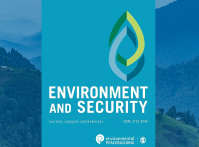-
Red Cross: Water Continues to Be Used as Weapon of War in Syria
September 3, 2015 By Schuyler NullWater is being used as a weapon of war on one of Syria’s deadliest battlegrounds, says the International Committee of the Red Cross (ICRC) and its local affiliate, the Syrian Arab Crescent, in a new video.
Aleppo, a city of more than 2 million before the conflict, has two pumping stations that are sometimes shut down by combatants to put pressure on the opposition. This disrupts supply for thousands of households, who go without water or revert to untreated sources.
As much as half Syria’s water production capacity has been lost or damagedThe ICRC and the Syrian Arab Crescent have responded by drilling wells near the front lines to provide backup water supplies to civilians. They have also organized loading points to deliver water by truck, says Tammo van Gastel, an ICRC water engineer.
As much as half of Syria’s water production capacity has been damaged by the conflict, the ICRC estimates. In neighboring Iraq, the Islamic State has strategically targeted water infrastructure and opened and closed flood gates they control to alternatively dry out or inundate downstream areas.
Some analysts have implicated Syria’s severe drought from 2007 to 2010 – the worst on record – in helping spark the civil war. Many farmers were forced to move to already crowded urban areas, exacerbating grievances with the government. A study published earlier this year found that climate change made such a long and severe drought two to three times more likely than natural variation alone.
The Syrian Observatory for Human Rights estimates at least 240,000 people have been killed in Syria since March 2011.
Sources: International Committee of the Red Cross, Reuters, PNAS, Syrian Observatory for Human Rights.
Video Credit: International Committee of the Red Cross.
 A Publication of the Stimson Center.
A Publication of the Stimson Center.






